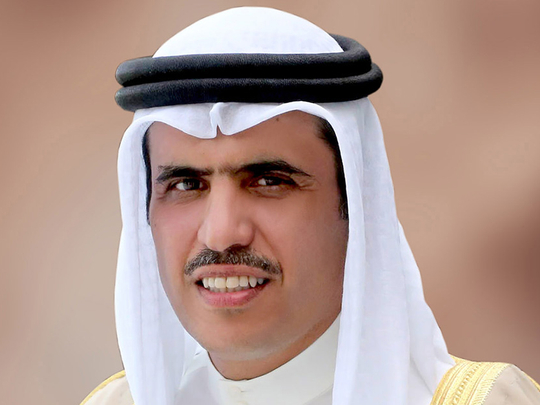
Manama: Bahrain will continue its partnership with the international community in the fight against extremism and terrorism, seen as the major international threats to the world’s stability and security, the information minister has said.
“They are dangerous phenomena not limited to a country or a religion that are menacing the world, targeting countries and people and undermining the foundations and achievements of the modern civil state,” Ali Al Rumaihi said.
“Bahrain is particularly keen on drying up the financial resources that fund terrorism, tackling its organisations and applying the law towards those who incite, promote and carry out acts of terrorism,” the minister said in an interview with London-based Al Sharq Al Awsat.
Al Rumaihi who was given the ministerial portfolio in March following years of experience in the media field said that Bahrain “was the target of a terrorist attempt to undermine its security and stability.”
“Bahrain was exposed to a conspiracy against its security and stability that included acts of violence and terror, the smuggling of weapons and explosives and attacks on policemen.
Such attacks have resulted since 2011 in the martyrdom of 19 policemen, injuries to 3,000 servicemen and damages suffered by innocent people,” he said.
“Investigations have revealed the involvement of the Iranian Revolutionary Guards and Hezbollah in the sheltering, funding and training of the terror cells and in supporting the espionage rings that have been busted.”
The minister added that Bahrain was also targeted in campaigns supported by media and foreign groups.
“Bahrain was the subject of intense campaigns to mislead the international community about what was going on and to distort all truths and facts. The media campaign involved around 40 outlets owned or funded by Iran that sought to incite sedition and sectarianism within the Bahraini society. Several organisations issued negative statements either because they were given erroneous information or one-sided version of the events that, of course, lacked credibility and accuracy, or because they wanted to distort the reality on the ground and serve their own agenda.”
The minister said there was some chaos in the Arab media landscape that he attributed to a lack of ethical, professional and moral standards as well as to the absence of accountability and sense of deep responsibility.
“There are close to 1,300 Arab television channels that are mainly owned by individuals — Around 87 per cent of the total figure. There are unfortunately channels that incite sedition, and religious and sectarian hatred, or propagate rumours and allegations or present immoral programmes. There are also regional and international channels broadcasting in Arabic and targeting specific countries, doubting their identities and spreading social discord within them.”
The situation has been compounded by the wide spread of social media in the Arab world, he added.
“There have been blatant abuses and misuses of social media to spread unfounded allegations and flagrant lies. Fake accounts are being used to target social peace and stability. The real challenge for us today is to promote the Arab media and to empower it to provide public opinion with news and information promptly and transparently. Our media should also work on promoting the values of tolerance and moderation,” Al Rumaihi said.












